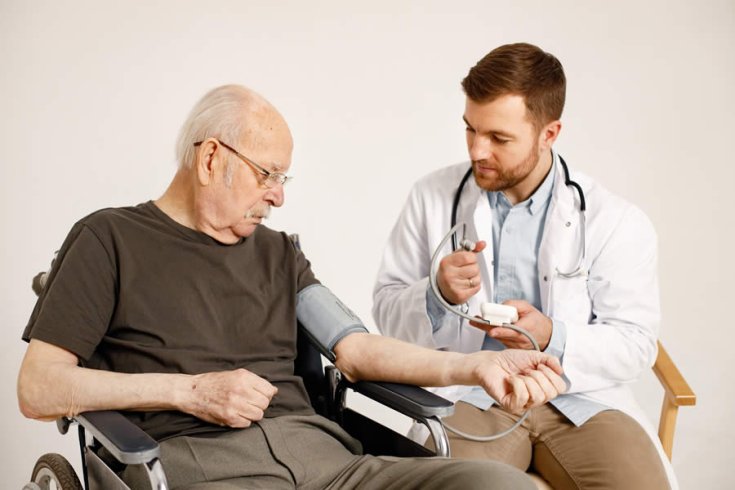Chest pain does not always start with a jolt. It can feel like mild pressure after exercise, a tightening under stress, or an ache that fades away. Many people mistake it for indigestion or tiredness, but overlooking it can be dangerous. At Capitol Cardiology Associates, we remind patients that early attention to these signs can prevent serious heart issues. Knowing when to reach out to a heart doctor can make all the difference. Understanding your body’s warning signs is the first step toward protecting your health, so let’s look at when it’s time to stop waiting and get checked.
Recognize the Warning Signs Early
Chest pain is the most recognized symptom of heart trouble, but it doesn’t always appear as the crushing pain shown in movies. Some patients describe it as pressure, heaviness, fullness, or even a tight band across the chest. It might last a few minutes, or it may come and go. Pay attention to discomfort that spreads beyond the chest. Pain or pressure that moves into the arm, back, neck, jaw, or stomach can signal heart strain. Shortness of breath, nausea, cold sweats, dizziness, or lightheadedness are also serious warning signs. These can occur with or without pain, particularly in women and older adults. If you notice these symptoms after physical activity or emotional stress, take them seriously. Your heart is a muscle that needs oxygen. When blood flow is blocked or reduced, your heart sends distress signals. Don’t wait for those signals to become an emergency. Early evaluation by a cardiologist can prevent complications before they start.
What Chest Discomfort Might Mean
Chest discomfort doesn’t always mean a heart attack is happening, but it should never be ignored. There are several possible causes, and many require medical care. Stable angina is one common cause. It develops when plaque builds up inside the arteries that feed the heart. Pain usually begins during activity and settles down once you rest. While that pattern may feel familiar, it still means the heart is not getting enough blood. Unstable angina is more dangerous because it can appear without warning, even while resting, and the pain can last much longer. This form calls for prompt medical care to prevent a heart attack. Other possibilities include inflammation of the heart lining, spasms of the coronary arteries, or problems unrelated to the heart, like acid reflux or muscle strain. Still, there’s no way to tell the difference without proper testing. That’s why reaching out to a heart doctor is the safest choice. They can use diagnostic tools like EKGs or stress tests to find out what’s really happening.
When to Call for Emergency Help
There are times when waiting for an appointment is too risky. If you experience any of the following, call 911 right away:
- Sudden, crushing, or severe chest pain that lasts more than a few minutes
- Pain that spreads to the shoulder, neck, jaw, or arms
- Shortness of breath, even while resting
- Sweating, nausea, or vomiting
- Weakness, dizziness, or loss of consciousness
Emergency medical teams can begin treatment immediately, which can save your life. Quick action also improves recovery chances by restoring blood flow to the heart sooner. Even if the pain turns out not to be heart-related, it’s better to be evaluated than to risk permanent damage.
Why Routine Checkups Matter
It’s smart to see a cardiologist even if you feel fine. Checkups can catch early changes that might lead to trouble later. Your doctor will look at your history, lab results, and daily habits to shape a plan for lasting heart strength. Nutritious food, movement, and stress control all help. A specialist can help track how your heart responds to those efforts and adjust your plan as needed. If you’ve had episodes of chest pain that disappear quickly or seem mild, don’t assume you’re fine. Many heart attacks are preceded by smaller warning events days or even weeks before. Seeing a doctor after even mild discomfort helps you stay ahead of problems.
How to Prepare for Your Appointment
Before your appointment, make a few notes about your symptoms. Include when they started, how long they lasted, what you were doing when they appeared, and what seems to make them better. This information helps your doctor spot patterns and figure out what may be causing the issue. It also helps to bring a list of your medicines and any recent test results. The more information you provide, the more accurate your diagnosis will be. If you’re nervous about the visit, remember that cardiology care has advanced in remarkable ways. Many tests are painless, and treatments today are less invasive than in the past. Early care prevents it from taking control of your life.
Living with Awareness
Once you’ve seen a doctor, stay mindful of how your body responds to everyday stress, diet, and activity levels. Notice small changes like faster fatigue, swelling in your legs, or unexpected shortness of breath. These can all indicate that your heart is working harder than it should. Use tools like blood pressure monitors and fitness trackers if they help you stay consistent. These tools don’t take the place of professional care, but they do offer real-time insight into how your body is responding. If something feels off, pay attention and schedule a visit. Caring for your heart supports every part of your life, so it's important to know where you stand and what you can do to stay healthy for the long run.
Have You Been Experiencing Uncomfortable Chest Pain or Pressure?
Chest discomfort should never be ignored. If you’ve experienced any of the warning signs discussed here, or if you’re uncertain about what your body is telling you, schedule an appointment today. The sooner you take that step, the better your outcome will be. At Capitol Cardiology Associates, your care is designed around your individual health needs. We use advanced diagnostics and proven treatments to help you protect your heart and prevent future problems. Timely testing and genuine care go hand in hand. Whether you are due for a routine checkup or need a full cardiac workup, our doctors are ready to help.






